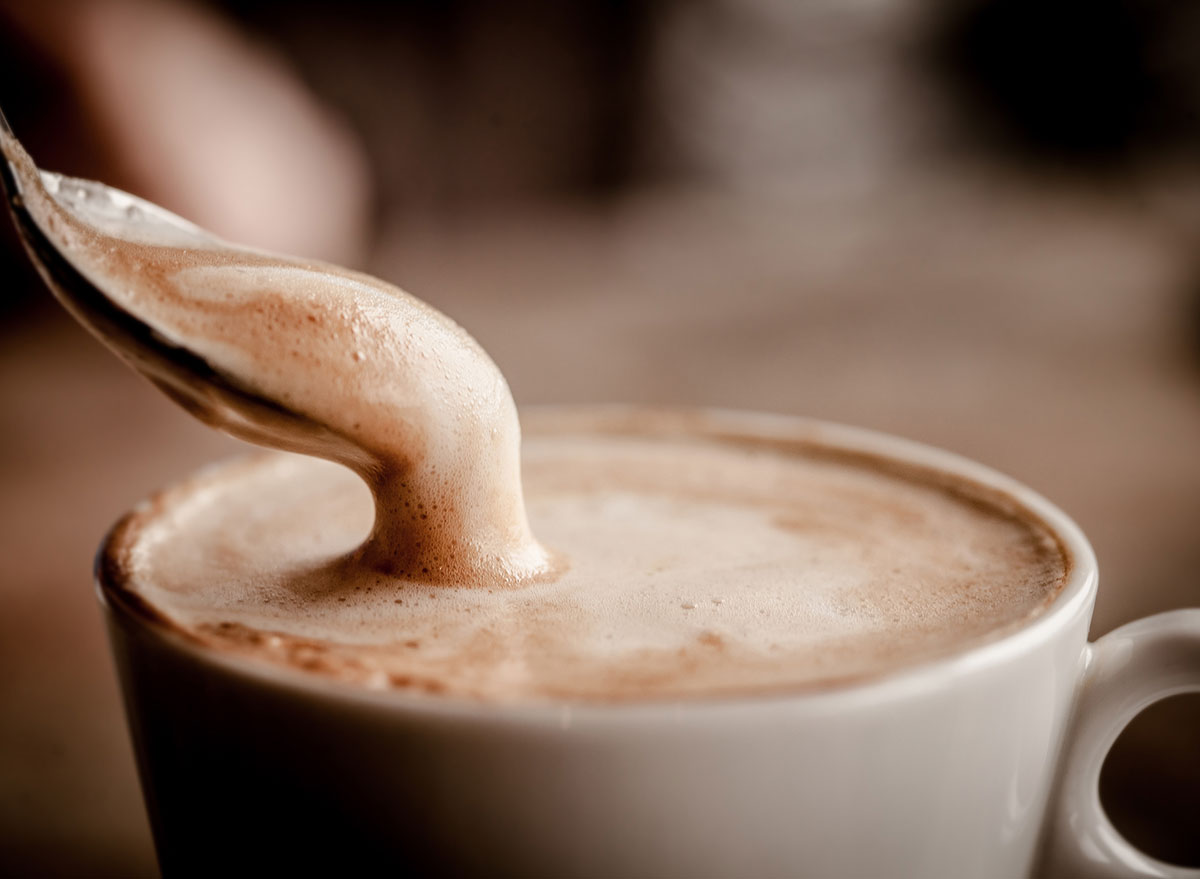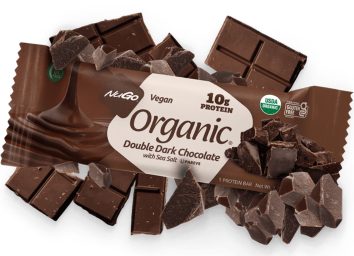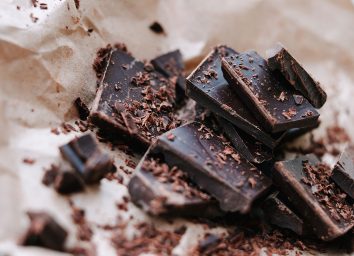Drinking This Beverage May Make You Smarter, Study Finds

What if we told you that sipping on homemade hot chocolate could give you a leg up on completing certain cognitive tasks? According to new research, drinking cocoa may help you learn new concepts or solve problems faster.
A new study published in the journal Scientific Reports conducted by researchers at the University of Birmingham explored the effect flavanols found in cocoa have on brain function in young, healthy adults. (Related: The 7 Healthiest Foods to Eat Right Now.)
What all did the study entail?
The study looked at 18 healthy males between the ages of 18 and 40. Each of the individuals underwent a standard procedure challenging the brain's blood circulation, which involved breathing 5% carbon dioxide (CO2). For context, that's about 100 times the normal CO2 concentration in the air. The process caused hypercapnia, or the presence of too much carbon dioxide in the bloodstream.
Each subject performed the CO2 test before and after drinking cocoa on two occasions. On one of those occasions, the cocoa was enriched with flavanols. On both occasions, participants were asked to complete several cognitive tests, which progressed in complexity.
Lead study author Dr. Catarina Rendeiro of the University of Birmingham's School of Sport, Exercise, and Rehabilitation Sciences, told Eat This, Not That! that the drink enriched with flavanols was made using a natural cocoa powder called Acticoa by Barry Callebaut. Participants consumed roughly 8.5 grams of powder within 300 mL of water.
So, what did the researchers find?
After reviewing the cognitive tests, researchers discovered that those who drank the flavanol-enriched cocoa had the highest levels of blood oxygenation in response to hypercapnia—up to three times higher than participants who drank the processed, alkalized cocoa beverage. As a result, these participants also completed their higher complexity cognitive tasks 11% faster on average.
"Efficient oxygenation of the brain is key for cognition," Rendeiro said. "The fact that flavanols can be effective at improving cerebral oxygenation and cognitive function even in a healthy brain is a remarkable finding, and it means that we can potentially all benefit from diets rich in flavanols."
Flavanols are found in a variety of foods, including apples, berries, grapes, and green tea. However, Rendeiro does note that eating chocolate squares—even ones made from dark chocolate—likely won't yield the same dose of flavanols as the cocoa powder.
"Unfortunately, it is difficult to know what the content of flavanols is in chocolate products as these are not [disclosed] in labels," she says. "Generally, scientific articles that have measured content of flavanols in commercially available chocolates do not seem to find any relationships between content of cocoa solids and levels of flavanols. This is mainly because the processing of cocoa to make chocolate can substantially damage flavanols."
Until chocolate bar producers create a product that's loaded in flavanols in a one or two square serving, consider making your own chocolate milk or hot chocolate with a flavanol-enriched cocoa powder. You may just find yourself plowing through your work day a little faster than normal.
For more, be sure to sign up for our newsletter.








